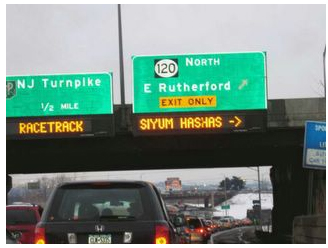 Simon Wiesenthal Z"L
Simon Wiesenthal Z"L

Simon Wiesenthal’s contributions to the Jewish People speak for themselves. Below is his AP obituary.
As an aside I would just like to point out something Rabbi Shalom Gold spoke about at a Kumah event in NY. In a nutshell he was researching Jewish life in Bavel (Babylonia) during the second temple era. Now Bavel is where MOST Jews lived. Only the lowest “dregs of Jewish Society” returned to Israel at that time. And yet he couldn’t find anything in the history books until he came across this quote that made a chill run down his spine. “The Jews of Babylonia during the Second Temple era lived on the fringes of recorded history.” The Jewish centers may have been there but Jewish history then was being recorded only in Israel! And today as well. Jewish history is being recorded in Israel.
Take a look at this obituary and see how many times Brooklyn is mentioned. Then see how many times Israel is...
Simon Wiesenthal did what he did for the Jewish People – and the center of the Jewish people is only one place in the world: Israel.
Here's the AP write-up:
VIENNA, Austria - Simon Wiesenthal, the Holocaust survivor who helped track down Nazi war criminals following World War II, then spent the later decades of his life fighting anti-Semitism and prejudice against all people, died Tuesday. He was 96.
Wiesenthal, who helped find one-time SS leader Adolf Eichmann and the policeman who arrested Anne Frank, died in his sleep at his home in Vienna, said Rabbi Marvin Hier, dean and founder of the Simon Wiesenthal Center in Los Angeles.
"I think he'll be remembered as the conscience of the Holocaust. In a way he became the permanent representative of the victims of the Holocaust, determined to bring the perpetrators of the greatest crime to justice," Hier told The Associated Press.
A survivor of five Nazi death camps, Wiesenthal changed his life's mission after the war, dedicating himself to tracking down Nazi war criminals and to being a voice for the 6 million Jews who died during the onslaught. He himself lost 89 relatives in the Holocaust.
Wiesenthal spent more than 50 years hunting Nazi war criminals, speaking out against neo-Nazism and racism, and remembering the Jewish experience as a lesson for humanity. Through his work, he said, some 1,100 Nazi war criminals were brought to justice.
"When history looks back I want people to know the Nazis weren't able to kill millions of people and get away with it," he once said.
Calls of condolences poured into Wiesenthal's office in Vienna, where one of his longtime assistants, Trudi Mergili, struggled to deal with her grief.
"It was expected," she said. "But it is still so hard."
The Israeli Foreign Ministry said Wiesenthal "brought justice to those who had escaped justice."
"He acted on behalf of 6 million people who could no longer defend themselves," ministry spokesman Mark Regev said Tuesday. "The state of
Israel, the Jewish people and all those who oppose racism recognized Simon Wiesenthal's unique contribution to making our planet a better place."
Austria's parliament speaker said "an important voice for remembrance and humanity has been silenced."
Wiesenthal was first sent to a concentration camp in 1941, outside Lviv, Ukraine. In October 1943, he escaped from the Ostbahn camp just before the Germans began killing all the inmates. He was recaptured in June 1944 and sent back to Janwska, but escaped death as his SS guards retreated with their prisoners from the Soviet Red Army.
Wiesenthal's quest began after the Americans liberated the Mauthausen death camp in Austria where Wiesenthal was a prisoner in May 1945. It was his fifth death camp among the dozen Nazi camps in which he was imprisoned, and he weighed just 99 pounds when he was freed. He said he quickly realized "there is no freedom without justice," and decided to dedicate "a few years" to that mission.
"It became decades," he added.
Even after turning 90, Wiesenthal continued to remind and to warn. While appalled at atrocities committed by Serbs against ethnic Albanians in
Kosovo in the 1990s, he said no one should confuse the tragedy there with the Holocaust.
"We are living in a time of the trivialization of the word 'Holocaust,'" he told AP in 1999. "What happened to the Jews cannot be compared with all the other crimes. Every Jew had a death sentence without a date."
Wiesenthal's life spanned a violent century.
He was born on Dec. 31, 1908, to Jewish merchants at Buczacs, a small town near the present-day Ukrainian city of Lviv in what was then the Austro-Hungarian empire. He studied in Prague and Warsaw and in 1932 received a degree in civil engineering.
He apprenticed as a building engineer in Russia before returning to Lviv to open an architectural office. Then the Russians and the Germans occupied Lviv and the terror began.
After the war, working first with the Americans and later from a cramped Vienna apartment packed with documents, Wiesenthal tirelessly pursued fugitive war criminals.
He was perhaps best known for his role in tracking down Eichmann, who organized the extermination of the Jews. Eichmann was found in Argentina, abducted by Israeli agents in 1960, tried and hanged for crimes committed against the Jews.
Wiesenthal often was accused of exaggerating his role in Eichmann's capture. He did not claim sole responsibility, but said he knew by 1954 where Eichmann was.
Eichmann's capture "was a teamwork of many who did not know each other," Wiesenthal told the AP in 1972. "I do not know if and to what extent reports I sent to Israel were used."
Among others Wiesenthal tracked down was Austrian policeman Karl Silberbauer, who he believed arrested the Dutch teenager Anne Frank and sent her to the Bergen-Belsen concentration camp where she died.
Wiesenthal decided to pursue Silberbauer in 1958 after a youth told him he did not believe in Frank's existence and murder, but would if Wiesenthal could find the man who arrested her. His five-year search resulted in Silberbauer's 1963 capture.
Wiesenthal did not bring to justice one prime target — Dr. Josef Mengele, the infamous "Angel of Death" of the Auschwitz concentration camp. Mengele died in South America after eluding capture for decades.
Wiesenthal's long quest for justice also stirred controversy.
In Austria, which took decades to acknowledge its own role in Nazi crimes, Wiesenthal was ignored and often insulted before being honored for his work when he was in his 80s.
In 1975, then-Chancellor Bruno Kreisky, himself a Jew, suggested Wiesenthal was part of a "certain mafia" seeking to besmirch Austria. Kreisky even claimed Wiesenthal collaborated with Nazis to survive.
Ironically, it was the furor over Kurt Waldheim, who became president in 1986 despite lying about his past as an officer in Hitler's army, that gave Wiesenthal stature in Austria.
Wiesenthal's failure to condemn Waldheim as a war criminal drew international ire and conflict with American Jewish groups. But it made Austrians realize that the Nazi hunter did not condemn everybody who took part in the Nazi war effort.
Wiesenthal did repeatedly demand Waldheim's resignation, seeing him as a symbol of those who suppressed Austria's role as part of Hitler's German war and death machine. But he turned up no proof of widespread allegations that Waldheim was an accessory to war crimes.
Wiesenthal's work exposed him to danger.
His house and office have been guarded by an armed police officer since June 1982, when a bomb exploded at his front door, causing severe damage but resulting in no injuries, according to the Wiesenthal Center Web site. One German and several Austrian neo-Nazis were arrested.
He pursued his crusade of remembrance into old age with the vigor of youth, with patience and determination. But as he entered his 90s, he worried that his mission would die with him.
"I think in a way the world owes him and his memory a tremendous amount of gratitude," Hier said.
Wiesenthal earned many awards, including Austria's Golden Decoration of Merit, which was presented by President Heinz Fischer at Wiesenthal's home in June. He also wrote several books, including his memoirs, "The Murderers Among Us," in 1967, and worked regularly at the small downtown office of his Jewish Documentation Center even after turning 90.
"The most important thing I have done is to fight against forgetting and to keep remembrance alive," he said in the 1999 interview with the AP. "It is very important to let people know that our enemies are not forgotten."
Wiesenthal's wife, Cyla, whom he married in 1936, died in November 2003.
A memorial service was to be held in Vienna's central cemetery on Wednesday. Funeral services will be in Israel, Mergili said.




0 Comments:
Post a Comment
<< Home